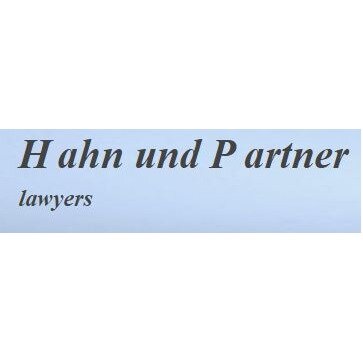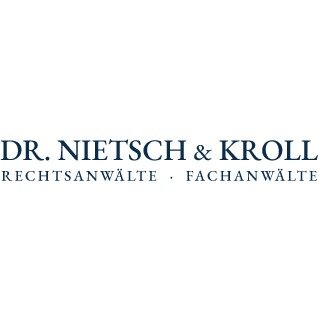Best Nonprofit & Charitable Organizations Lawyers in Hamburg
Share your needs with us, get contacted by law firms.
Free. Takes 2 min.
List of the best lawyers in Hamburg, Germany
About Nonprofit & Charitable Organizations Law in Hamburg, Germany
Nonprofit and charitable organizations in Hamburg, Germany, are integral parts of the fabric of society, providing essential services and support to various causes and communities. These entities can take many forms, including associations, foundations, and charitable limited liability companies, each governed by specific laws and regulations. The legal framework ensures that these organizations operate transparently and responsibly, maintaining trust with donors, beneficiaries, and the public. Hamburg is known for its active and vibrant nonprofit sector, supported by a strong regulatory environment designed to facilitate philanthropic activities while ensuring compliance with federal, state, and local laws.
Why You May Need a Lawyer
There are several scenarios where individuals or organizations might require legal assistance in the nonprofit and charitable sector in Hamburg:
- Forming a new nonprofit entity and navigating the necessary legal processes and documentation.
- Ensuring compliance with tax regulations and obtaining tax-exempt status.
- Drafting and reviewing contracts, bylaws, and other legal documents.
- Addressing issues of governance and board responsibilities.
- Resolving disputes among members, donors, or beneficiaries.
- Navigating mergers, dissolutions, or restructuring activities.
- Handling employment law issues unique to nonprofit organizations.
- Managing sponsorships, fundraising activities, and collaborations.
Local Laws Overview
Nonprofit organizations in Hamburg must comply with both federal and state-level regulations. Key aspects include:
- Foundation Law: Governing the establishment and operation of foundations, ensuring they serve public benefit purposes.
- Associations Law: Includes regulations about Vereinsregister (register of associations) and the legal requirements for registered associations.
- Tax Law: Nonprofits must adhere to specific tax codes to maintain tax-exempt status, requiring transparent accounting and reporting.
- Charitable Status: Acknowledged organizations receive benefits but must comply with strict operational guidelines.
- Employment Law: Applicable labor laws face unique interpretations for nonprofits, especially regarding volunteer work.
- Data Protection and Privileges: GDPR regulations apply to how nonprofits handle personal data.
Frequently Asked Questions
What are the first steps to start a nonprofit in Hamburg?
You would need to choose a legal form, draft your bylaws, and register the organization with the relevant authorities such as the Vereinsregister or Stiftungsgesetz, depending on your chosen form.
How do I apply for tax-exempt status?
Submit an application to the local tax authority providing detailed information about your organization’s purpose and activities, and ensure compliance with relevant regulations to qualify for tax benefits.
What are the responsibilities of a nonprofit board in Hamburg?
Board members are tasked with oversight and ensuring the organization meets its legal and fiduciary responsibilities, including financial management and mission alignment.
Do nonprofits in Hamburg have to file annual reports?
Yes, nonprofit organizations are required to submit financial statements and activity reports to demonstrate transparency and accountability.
Can a foreigner start a nonprofit in Hamburg?
Yes, foreigners can establish nonprofits, but they must comply with local laws and may require appropriate legal support to navigate any additional requirements.
What are the regulations regarding fundraising?
Fundraising activities need to comply with legal standards to ensure transparency and ethical practices, often involving specific permissions depending on methods and activities.
What is the role of a foundation in Hamburg?
Foundations support philanthropic activities by managing and distributing funds for specific causes, operating under strict legal guidelines to ensure the proper use of assets.
How do I handle a legal dispute within a nonprofit organization?
Seek legal advice to explore dispute resolution mechanisms such as mediation or arbitration, and ensure actions align with the organization’s bylaws and legal obligations.
Are there grants available for nonprofit organizations in Hamburg?
Yes, various governmental and non-governmental grants are available, but they often require a detailed application process and compliance with specific criteria.
How can a lawyer assist with employment issues in a nonprofit?
Lawyers provide guidance on employment contracts, volunteer agreements, and compliance with labor laws affecting employee rights and organizational policies.
Additional Resources
- The Hamburg Chamber of Commerce offers guidance on starting and operating nonprofits.
- The Federal Ministry of Finance provides resources on tax regulations for nonprofits.
- The German Register of Associations is crucial for entities choosing the association form.
- Voluntary Sector Network and Support Organizations offer community advice and networking opportunities.
- Law Firms specializing in nonprofit law provide essential legal services and insights.
Next Steps
If you require legal assistance in nonprofit and charitable organizations, consider the following steps:
- Identify specific legal needs and the type of organization you want to form or manage.
- Consult with a lawyer specializing in nonprofit law to understand your legal obligations and rights.
- Gather necessary documentation and information about your organization’s purpose and operations.
- Stay informed about updates to relevant laws and regulations that may affect your organization.
- Engage with local nonprofit networks and forums to share experiences and seek peer advice.
Lawzana helps you find the best lawyers and law firms in Hamburg through a curated and pre-screened list of qualified legal professionals. Our platform offers rankings and detailed profiles of attorneys and law firms, allowing you to compare based on practice areas, including Nonprofit & Charitable Organizations, experience, and client feedback.
Each profile includes a description of the firm's areas of practice, client reviews, team members and partners, year of establishment, spoken languages, office locations, contact information, social media presence, and any published articles or resources. Most firms on our platform speak English and are experienced in both local and international legal matters.
Get a quote from top-rated law firms in Hamburg, Germany — quickly, securely, and without unnecessary hassle.
Disclaimer:
The information provided on this page is for general informational purposes only and does not constitute legal advice. While we strive to ensure the accuracy and relevance of the content, legal information may change over time, and interpretations of the law can vary. You should always consult with a qualified legal professional for advice specific to your situation.
We disclaim all liability for actions taken or not taken based on the content of this page. If you believe any information is incorrect or outdated, please contact us, and we will review and update it where appropriate.













